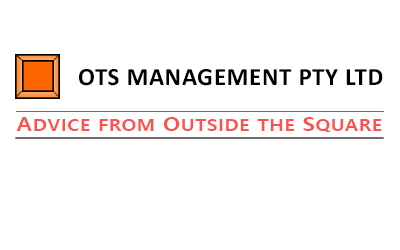Mistakes happen all the time, and they happen in businesses every day.
These mistakes can range from how a customer complaint is handled, or how an order is fulfilled, to mistakes in book-keeping or orders, or just plain misunderstandings on how something should be dealt with. I'll bet you that you can think of a few off the top of your head.
Mistakes can be small and meaningless or huge and catastrophic. But even if you think small mistakes can be ignored, how you handle these small daily mistakes gives you an insight into how your business can handle the more serious kind.
How your business handles mistakes is part of your corporate culture. It involves all the other parts of how you handle business - from transparency and accountability to good communication, and to responsiveness.
A transparent and accountable culture in your business means that people tend to take responsibility, not only for mistakes made, but also for the completion of projects, for innovative solutions to problems, and for leadership when the situation demands it.
A lack of transparency and accountability means that people hide away. They do not volunteer to fix errors or indeed to do anything else. It nurtures a culture of waiting to be told - a culture that will add extra pressure and responsibi8lity on the shoulders of the owner.
Similarly, how your business handles mistakes tells you about the type of communication used by your people. Cultures of good communication mean that there is no blame levelled, rather an honest discussion of what, when and where. This allows you to escalate the solutions to errors to the right level so that satisfaction is achieved. This culture of good communication cascades from the example of how you handle mistakes to how your business systems operate - good communication means that feedback is open and honest, leading to improvements in processes and functions like better sales, or more efficient purchasing.
In this way, culture affects your bottom line.
So, take a look at some key aspects of how you manage mistakes in your business.
Firstly, ask yourself how effectively your business identifies and responds to problems when they arise?
The faster a problem or mistake is identified, the faster you can make improvements, whether to systems, prices, or remediation processes. For example, if a product is shipped to a customer with the wrong specifications, how quickly is it spotted and what happens next? Ask yourself how the problem is analysed and how are improvements made so that it does not happen again?
Secondly, ask yourself whether the mistakes are dealt with and corrected by individuals, or by the business as a whole?
Sometimes, the person who made the mistake has to correct their error.
This can be a soul-destroying thing to do, especially if they are inexperienced. They probably made the mistake because of their inexperience and yet they are expected to make it right.
Institutional corrective processes usually use mistakes as an opportunity to provide mentorship. They analyse the error to see if it was caused by a system failure (not enough checking in a process?) or by inexperience.
The institutional systems themselves must support this - for example company reward systems may actually push people toward hiding their mistakes rather than learning from them.
The phrase "there are no mistakes, only learning opportunities" is a good one to remember.
Which brings us to the third question to ask yourself - "how good is the business at learning from mistakes?"
If you are constantly provided with "learning opportunities" then clearly you are not learning from mistakes. Again the question of individualism or the business as a whole comes into play - if the individual learned from the mistake but the lesson was not shared, then there is an institutional failure to learn. So, look for ways to share lessons learned, whether by better communication or through the revision of corporate manuals and procedures.
As well, check to make sure that a learning culture is supported by resources and systems.
If it is incredibly difficult to change your procedures manuals, then there is a systemic failure in adopting new learning and change. If mistakes are seen to be caused by a lack of training but there is no time or funds allocated to provide training then there is a failure in supporting the culture by providing appropriate resources.
Finally, ask yourself if your business' stated values align with the way you manage mistakes. What are your stated values about customer relationships? Open and honest communication? Continuous improvements? If these don't align with the way you handle mistakes, something has to change.
As I said at the beginning, mistakes will happen.
They can devastate your business - think unhappy customers, or they can be a strength in your business and the culture that reinforces effective management of handling mistakes can also be a culture that allows your business to grow innovatively and efficiently.




